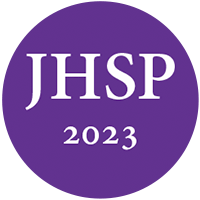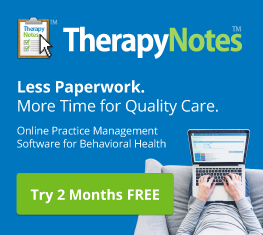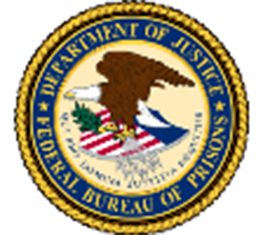The professional home for health service psychologists.
Join a community of 15,000 psychologists and trainees.
Learn it today. Apply it tomorrow.
Connecting you to what you need in your career.
Making a difference.
Maerlender, A. (2019). Concussion management: Psychological considerations. Journal of Health Service Psychology, 45, 99–104.
Due to the risks of reinjury and prolonged recovery, the management of mild traumatic brain injury (mTBI) and sports-related concussion primarily involve behavioral interventions. In the youth population, prolonged recovery impacts school performance, making schools a primary focus of attention. The disciplines of clinical psychology and school psychology provide training that is compatible with several aspects of concussion management, including behavioral assessment and the treatment of affective responses to injury. The latter is a significant risk for prolonged recovery. We suggest that clinical psychologists, neuropsychologists, and school psychologists support each other in providing concussion care to youth.
Registrants can read the full article on CE.NationalRegister.org
Batchelor, E. S. (2019). Diagnosis and Treatment of Mild Traumatic Brain Injury (mTBI). Journal of Health Service Psychology, 45, 29-37.
Brooks, M. A., Snedden, T. R., Mixis, B., Hetzel, S., & McGuine, T. A. (2017). Establishing Baseline Normative Values for the Child Sport Concussion Assessment Tool. JAMA Pediatrics, 171(7), 670. https://doi.org/10.1001/jamapediatrics.2017.0592
Carr, J., & Sidenar, T. (2002). On the relation between applied behavior analysis and positive behavioral support. The Behavior Analyst, 25, 245–253.
Caze, T., Hope, D., & Maerlender, A. (2015, July). Impact of Anxiety Sensitivity and Negative Affect on Concussion. Presentation presented at the 3rd Annual Big Ten/CIC-Ivy League Traumatic Brain Injury Research Collaboration Summit, Chicago IL.
Caze, T., Maerlender, A., & Higgins, K. (2017, June). Negative Versus Positive Affect in Concussion Recovery. Boston. Presented at the Annual meeting of the American Academy of Clinical Neuropsychology. Boston
Chin, E. Y., Nelson, L. D., Barr, W. B., McCrory, P., & McCrea, M. A. (2016). Reliability and Validity of the Sport Concussion Assessment Tool–3 (SCAT3) in High School and Collegiate Athletes. The American Journal of Sports Medicine, 44(9), 2276–2285. https://doi.org/10.1177/0363546516648141
Chrisman, S. P. D., Lowry, S., Herring, S. A., Kroshus, E., Hoopes, T. R., Higgins, S. K., & Rivara, F. P. (2019). Concussion Incidence, Duration, and Return to School and Sport in 5- to 14-Year-Old American Football Athletes. The Journal of Pediatrics, 207, 176-184.e1. https://doi.org/10.1016/j.jpeds.2018.11.003
Fletcher, J., Francis, D., Morris, R., & Lyon, R. (2005). Evidence-based assessment of learning disabilities in children and adolescents. Journal of Clinical Child and Adolescent Psychology, 34(3), 506–522.
Goyal, M., Singh, S., Sibinga, E., Gould, N., Rowland-Seymour, A., Sharma, R., … Cramer, H. (2014). Meditation Programs for Psychological Stress and Well-being: A Systematic Review and Meta-analysis. Deutsche Zeitschrift Für Akupunktur, 57(3), 26–27. https://doi.org/10.1016/j.dza.2014.07.007
Gresham, S., McIntyre, L., Olson-Tinker, H., Dolstra, L., McLaughlin, V., & Van, M. (2004). Relevance of functional behavioral assessment research for school-based interventions and positive behavioral support. Research in Developmental Disabilities, 25, 19–37.
Institute of Medicine (IOM) and National Research Council (NRC). (2013). Sports-related concussions in youth: Improving the science, changing the culture. Washington, D.C.: The National Academies Press.
Keough, M. E., & Schmidt, N. B. (2012). Refinement of a brief anxiety sensitivity reduction intervention. Journal of Consulting and Clinical Psychology, 80(5), 766–772. https://doi.org/10.1037/a0027961
Kirkwood, M. W., Peterson, R. L., Connery, A. K., Baker, D. A., & Forster, J. (2016). A Pilot Study Investigating Neuropsychological Consultation as an Intervention for Persistent Postconcussive Symptoms in a Pediatric Sample. Journal of Pediatrics, 169, 244-249e1. https://doi.org/10.1016/j.jpeds.2015.10.014
Kontos, A. P., Sufrinko, A., Elbin, R. J., Puskar, A., & Collins, M. W. (2016). Reliability and associated risk factors for performance on the Vestibular/Ocular Motor Screening (VOMS) tool in healthy collegiate athletes. American Journal of Sports Medicine, 44(6), 1400–1406. https://doi.org/10.1177/0363546516632754
Maddocks, D. I., Dicker, C. D., & Saling, M. M. (1995). The assessment of orientation following concussion in athletes. Clinical Journal of Sports Medicine, 5(1), 32–35.
Maerlender, A., Rieman, W., Lichtenstein, J., & Condiracci, C. (2015). Programmed physical exertion in recovery from sports-related concussion: A randomized pilot study. Developmental Neuropsychology, 40(5). https://doi.org/10.1080/87565641.2015.1067706
Maerlender, Arthur, Lichtenstein, J. D., Parent-Nichols, J., Higgins, K., & Reisher, P. (2019). Concussion competencies: A training model for school-based concussion management. Concussion. https://doi.org/10.2217/cnc-2018-0008
Maerlender, Arthur, Lichtenstein, J., & Parent-Nichols, J. (2018). Concussion competencies: A framework for school-based concussion management (2nd ed.). Syron Designs.
Maerlender, Arthur, Masterson, C., Caze, T., Calvi, J., Mathiasen, R., & Molfese, D. (2019). Assessment of Sleep in the Acute Phase of Concussion in Youth [FInal Report]. Lincoln, NE: University of Nebraska, Lincoln
Maerlender, Arthur, Terryerry-Spohr, L., McKune, R., Moffatt, K., Reisher, P., Ogea-Ginsburg, P., … Kincaid, C. (2018). Concussion Recognition & Management (for licensed health care professionals). Retrieved from http://dhhs.ne.gov/ConcussionManage
Maerlender, Higgins, & Caze. (2016). A Closer Look at Concussion Clinics. BIAA Challenge!, 10–14
Master, C. L., Gioia, G. A., Leddy, J. J., & Grady, M. F. (2012). Importance of ‘Return-to-Learn’ in Pediatric and Adolescent Concussion. Pediatric Annals, 41(9), e160–e166. https://doi.org/10.3928/00904481-20120827-09
McCarty, C. A., Zatzick, D., Stein, E., Wang, J., Hilt, R., & Rivara, F. P. (2016). Collaborative Care for Adolescents With Persistent Postconcussive Symptoms: A Randomized Trial. Pediatrics, 138(4), e20160459–e20160459. https://doi.org/10.1542/peds.2016-0459
McCrory, P., Meeuwisse, W., Dvořák, J., Aubry, M., Bailes, J., Broglio, S., … Vos, P. E. (2017). Consensus statement on concussion in sport—The 5th international conference on concussion in sport held in Berlin, October 2016. British Journal of Sports Medicine, 51(11), 838–847. https://doi.org/10.1136/bjsports-2017-097699
Mrazek, M. D., Franklin, M. S., Phillips, D. T., Baird, B., & Schooler, J. W. (2013). Mindfulness Training Improves Working Memory Capacity and GRE Performance While Reducing Mind Wandering. Psychological Science, 24(5), 776–781. https://doi.org/10.1177/0956797612459659
Öğülmüş, K., & Vuran, S. (2016). Schoolwide Positive Behavioral Interventions and Support Practices: Review of Studies in the Journal of Positive Behavior Interventions. Educational Sciences: Theory & Practice, 16(5). https://doi.org/10.12738/estp.2016.5.0264
Schmeekle, W. (2019). 2018 Concussion Management Survey. Nebraska Department of Health & Human Services Injury Prevention Program
Schmidt, N. B., Capron, D. W., Raines, A. M., & Allan, N. P. (2014). Randomized clinical trial evaluating the efficacy of a brief intervention targeting anxiety sensitivity cognitive concerns. Journal of Consulting and Clinical Psychology, 82(6), 1023–1033. https://doi.org/10.1037/a0036651
Schneider, K. J., Iverson, G. L., Emery, C. A., McCrory, P., Herring, S. A., & Meeuwisse, W. H. (2013). The effects of rest and treatment following sport-related concussion: A systematic review of the literature. British Journal of Sports Medicine, 47(5), 304–307. https://doi.org/10.1136/bjsports-2013-092190
Schneider, K. J., Leddy, J. J., Guskiewicz, K. M., Seifert, T., McCrea, M., Silverberg, N. D., … Makdissi, M. (2017). Rest and treatment/rehabilitation following sport-related concussion: A systematic review. British Journal of Sports Medicine, 51(12), 930–934. https://doi.org/10.1136/bjsports-2016-097475
Silverberg, N. D., & Iverson, G. L. (2013). Is Rest After Concussion “The Best Medicine?”: Recommendations for Activity Resumption Following Concussion in Athletes, Civilians, and Military Service Members. Journal of Head Trauma Rehabilitation, 28(4), 250–259. https://doi.org/10.1097/HTR.0b013e31825ad658
Silverberg, N., Hallam, B., Rose, A., Underwood, H., Whitefield, K., Thornton, A., & Whittal, M. (2013). Cognitive-behavioral prevention of postconcussion syndrome in at-risk patients: A pilot randomized controlled trial. Journal of Head Trauma Rehabilitation, 28(4), 313–322.
Sullivan, K. A., Kaye, S.-A., Blaine, H., Edmed, S. L., Meares, S., Rossa, K., & Haden, C. (2019). Psychological approaches for the management of persistent postconcussion symptoms after mild traumatic brain injury: A systematic review. Disability and Rehabilitation, 1–9. https://doi.org/10.1080/09638288.2018.1558292
Twamley, E. W., Jak, A. J., Delis, D. C., Bondi, M. W., & Lohr, J. B. (2014). Cognitive Symptom Management and Rehabilitation Therapy (CogSMART) for Veterans with traumatic brain injury: Pilot randomized controlled trial. Journal of Rehabilitation Research and Development, 51(1), 59–70. https://doi.org/10.1682/JRRD.2013.01.0020
Zhang, A. L., Sing, D. C., Rugg, C. M., Feeley, B. T., & Senter, C. (2016). The Rise of Concussions in the Adolescent Population. Orthopaedic Journal of Sports Medicine, 4(8), 232596711666245. https://doi.org/10.1177/2325967116662458
Copyright © 2025 All rights reserved. National Register of Health Service Psychologists










